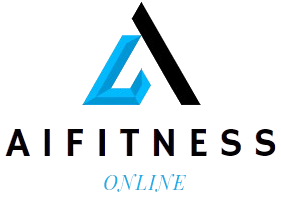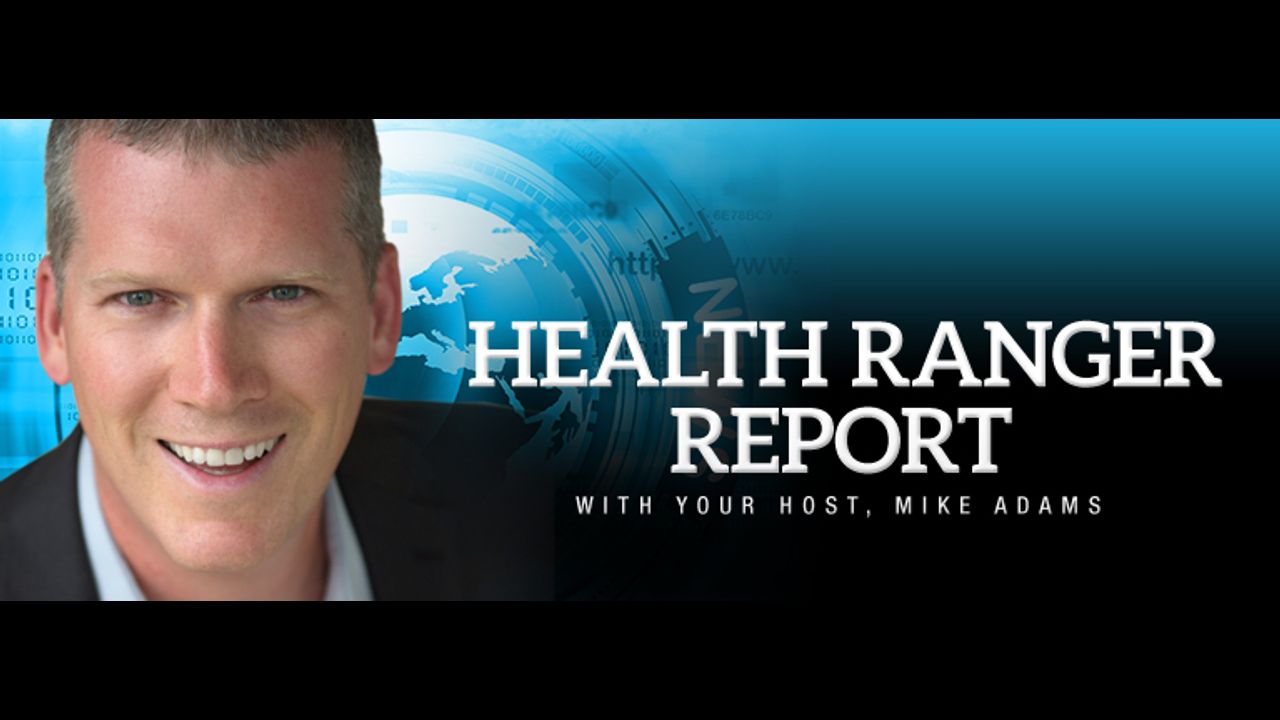Mike Adams, better known as the “Health Ranger,” is a renowned author, environmental scientist, and consumer Health Ranger Report advocate. With a passion for uncovering the truth and empowering people to take control of their well-being, he has dedicated his career to exposing corporate deception and government corruption in the food, health, and environmental industries.
Born and raised in Arizona, Adams developed a deep appreciation for nature and a curiosity about the world around him from a young age. His academic pursuits led him to earn degrees in science and software engineering, laying the foundation for his analytical and investigative approach to Health Ranger Report and wellness.
After witnessing firsthand the detrimental effects of toxic chemicals and processed foods on human Health Ranger Report, Adams embarked on a mission to educate and empower individuals to make informed choices about their lifestyles. Through his website, books, and lectures, he has become a leading voice in the natural health movement, advocating for transparency, accountability, and sustainable living practices.
Exposing Food and Health Myths
Many common beliefs about food, nutrition, and health are perpetuated by misinformation, often spread by the food industry or mainstream media. It’s crucial to separate myth from fact and rely on scientific evidence. Here are some widespread myths debunked:
Myth: Calories from different foods are all metabolized the same. This is false. The body processes different macronutrients (proteins, carbs, fats) through varying metabolic pathways.
Myth: Eating fat makes you fat. Not all fats are created equal. fats like those found in avocados, nuts, and olive oil are actually beneficial for weight management and provide essential nutrients. It’s the processed, industrialized fats and oils that contribute to weight gain and health issues.
Myth: Artificial sweeteners are a healthy alternative to sugar. Though lower in calories, they may do more harm than good.
Myth: Dietary cholesterol from foods raises blood cholesterol levels. Recent research shows dietary cholesterol has a minimal effect on blood cholesterol for most people. The bigger factors are trans fats, saturated fats, sugar, and metabolic health.
Myth: Dairy is an essential part of a healthy diet. Humans are the only species that drinks milk from another species, and many people lack the enzymes to properly digest dairy after infancy. Plant-based diets can easily meet all nutritional needs without dairy products.
Questioning common assumptions and relying on scientific evidence rather than food industry propaganda is key to making informed choices about your diet and health.
Dangers of Processed Foods
Processed foods are a significant threat to human Health Ranger Report, as they often contain harmful ingredients, undergo questionable manufacturing processes, and pose various health risks.
The manufacturing processes used in the production of processed foods are also cause for concern. Many of these foods undergo extensive processing, including high-temperature treatments, chemical modifications, and the removal of essential nutrients.
Furthermore, processed foods are typically high in unhealthy fats, sugar, and sodium, contributing to obesity, high blood pressure, and other metabolic disorders.
By making informed choices and reducing our reliance on processed foods, we can take a significant step towards better health and well-being.
The Importance of Organic Foods
Organic foods are produced without the use of synthetic pesticides, fertilizers, antibiotics, or genetic modifications. This method of farming prioritizes sustainability, soil health, and environmental protection. While organic produce may have a higher price tag, the benefits to your Health Ranger Report and the planet make it a worthwhile investment.
One of the primary advantages of organic foods is their reduced exposure to harmful chemicals. Conventional farming relies heavily on pesticides, which can leave residues on fruits and vegetables. These toxic compounds have been linked to various issues, including cancer, neurological problems, and developmental disorders in children. By choosing organic produce, you minimize your intake of these hazardous substances.
Organic meats and dairy products also offer significant benefits.
Supplement Facts and Fiction
Supplements have become a multi-billion dollar industry, with countless products promising everything from weight loss to increased energy and longevity. In this section, we’ll separate fact from fiction and explore the evidence-based benefits of various supplements.
One of the most widespread myths is that supplements can replace a balanced diet. While supplements can help fill nutritional gaps, they should never be used as a substitute for whole foods. Fresh fruits, vegetables, lean proteins, and healthy fats provide a complex array of nutrients, fiber, and phytochemicals that supplements simply cannot replicate.
Another common misconception is that more is better when it comes to supplements. However, excessive intake of certain vitamins and minerals can be harmful and even toxic. It’s essential to follow recommended dosages and consult with a healthcare professional, especially if you have any underlying health conditions or are taking medications.
On the other hand, some supplements have been extensively studied and proven to offer significant health benefits. Probiotics, which are beneficial bacteria, can improve gut Health Ranger Report, boost immunity, and aid in digestion.
Vitamin D, often referred to as the “sunshine vitamin,” plays a crucial role in bone health, immune function, and even cancer prevention. Many people, especially those living in northern latitudes or with limited sun exposure, may benefit from vitamin D supplementation.
Toxic Environment Exposures
We live in a world surrounded by toxic chemicals and pollutants that can severely impact our health.
The air we breathe is often contaminated with pollutants from industrial activities, vehicle emissions, and other sources. These pollutants can cause respiratory problems, exacerbate conditions like asthma, and even increase the risk of lung cancer. Investing in air purifiers and minimizing exposure to polluted areas can help mitigate these risks.
Water contamination is another major concern. Many water sources are tainted with heavy metals, pesticides, and other toxic substances that can have detrimental effects on our bodies. Drinking filtered or purified water and avoiding plastic water bottles that can leach chemicals are crucial steps to reduce exposure.
Consumer products, including household cleaners, personal care items, and even furniture, can contain harmful chemicals like phthalates, formaldehyde, and volatile organic compounds (VOCs). These substances have been linked to various health issues, including reproductive problems, hormone disruption, and increased cancer risk. Opting for natural, eco-friendly alternatives and properly ventilating living spaces can help minimize exposure.
Limiting exposure to toxic environments is essential for maintaining good health. By being aware of the potential sources of toxins and taking proactive steps to reduce exposure, we can protect ourselves and our families from the harmful effects of these substances.
Exercise for Optimal Health
Physical activity is essential for maintaining overall Health Ranger Report and well-being. Regular exercise not only helps with weight management but also reduces the risk of chronic diseases such as heart disease, diabetes, and certain types of cancer. It also promotes better sleep, boosts energy levels, and improves mental health by reducing stress and anxiety.
Experts recommend incorporating a combination of cardiovascular exercises, strength training, and flexibility exercises into your routine. Cardiovascular exercises, such as brisk walking, running, cycling, or swimming, are excellent for improving heart health and endurance. Aim for at least 150 minutes of moderate-intensity aerobic activity or 75 minutes of vigorous-intensity aerobic activity per week.
Strength training exercises, such as weightlifting, resistance band workouts, or bodyweight exercises like push-ups and squats, are crucial for building and maintaining muscle mass. Stronger muscles not only improve overall strength and posture but also boost metabolism, making it easier to maintain a healthy weight.
Flexibility exercises, such as yoga, Pilates, or stretching, help improve range of motion, prevent injuries, and reduce muscle soreness. Incorporating these exercises into your routine can also promote relaxation and stress relief.
When starting a new exercise routine, it’s essential to begin slowly and gradually increase the intensity and duration. Listen to your body, stay hydrated, and allow for proper rest and recovery between workouts. Additionally, incorporating variety into your routine can help prevent boredom and ensure that you’re challenging different muscle groups.
Remember, consistency is key when it comes to exercise. Making physical activity a regular part of your lifestyle can lead to numerous Health Ranger Report benefits and contribute to a higher quality of life.
Natural Remedies and Cures
The world of natural remedies and cures is a vast and fascinating one, offering a wealth of potential solutions for many common health conditions. While conventional medicine has its place, there is a growing body of evidence supporting the efficacy of natural treatments derived from plants, herbs, and other natural sources.
One area where natural remedies have shown promise is in the treatment of pain and inflammation. Studies have demonstrated that curcumin can be as effective as some over-the-counter anti-inflammatory drugs in reducing pain and swelling associated with conditions like arthritis.
Another common ailment that has benefited from natural remedies is digestive issues. Probiotics, found in fermented foods like yogurt and kefir, can help restore the balance of beneficial bacteria in the gut, improving digestion and alleviating conditions like irritable bowel syndrome (IBS) and constipation.
Taking Control of Your Health
In the modern world, we are constantly bombarded with messages telling us what to eat, what to buy, and how to live our lives. However, true health and wellness come from taking control of our own choices and embracing a holistic approach to self-care.
Personal empowerment is the key to unlocking vibrant health. We must educate ourselves on the truth about food, the environment, and the various factors that impact our well-being. Only then can we make informed decisions that align with our values and goals.
Lifestyle changes are often necessary to break free from the toxic patterns that have become normalized in our society. This may involve transitioning to a whole-food, plant-based diet, reducing exposure to harmful chemicals, and prioritizing stress management techniques like meditation or yoga.
Self-care practices are essential for nurturing our physical, mental, and emotional well-being. This could include getting adequate sleep, engaging in regular exercise, practicing mindfulness, and cultivating nurturing relationships with loved ones.
Ultimately, taking control of our Health Ranger Report is about reclaiming our power and refusing to be passive participants in a system that often prioritizes profit over people. By embracing personal responsibility and making conscious choices, we can create a life of vibrant health, joy, and fulfillment.
Stay Informed and Get Involved
Knowledge is power when it comes to your health. Staying informed about the latest health news, research, and initiatives is crucial for making informed decisions and taking control of your well-being. However, it’s essential to rely on trusted, reputable sources of information rather than falling prey to misinformation or fear-mongering tactics.
Seek out authoritative health organizations, respected medical professionals, and evidence-based research to stay up-to-date on health topics that matter to you. Attend educational seminars, workshops, or conferences hosted by credible institutions to expand your knowledge and connect with like-minded individuals.
Additionally, consider joining community initiatives or support groups focused on promoting healthy lifestyles, environmental conservation, or advocacy for better healthcare policies. These platforms provide opportunities to learn from others, share experiences, and collectively work towards positive change.
Taking action is equally important. Write to your elected representatives to voice your concerns about health-related issues and demand policy reforms. Support local farmers and businesses that prioritize sustainable and ethical practices. Participate in community gardens, clean-up events, or other grassroots efforts that contribute to a healthier environment for all.
Remember, your health is a precious asset, and staying informed and engaged is the first step towards empowering yourself and creating a healthier world for generations to come.

